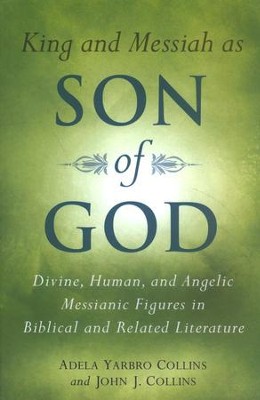Mark has the theme of “son of God”[1] as its bookends.[2] This work was written at a time when the emperor claimed divine status with this title. Here, Jesus was declared the son of God, and there could hardly have been a more “counter-political message”[3][4] for the Markan audience. However, he was characterized by acts of mercy, kindness, and intervention on behalf of the oppressed rather than cruelty, brutality and selfish ambition.
When considering the content of Mark and the ways it differs from the later traditions found in Matthew and Luke, there are numerous elements that stand out. Matthew and Luke[5] quote from Jeremiah 7 but only Mark has the more complete reference to Isaiah 56:7, “for all the nations.”[6] While there are multiple possibilities present in this text,[7] there are two particular themes of interest for this post.
First, it does not appear in Mark that Jesus is against the temple or ritual in and of itself.[8] There is the suggestion that commercialization and corruption of the priesthood,[9] at the people’s expense, is the focus of his protest. This is seen in the contrast between “house of prayer for all nations” and “den of robbers.”[10] Sources indicate that many Jews in this period were overtly perturbed with the way the leadership was abusing their authority[11] and failing to guide the God-ordained system of worship in just ways.
The second theme is the exclusion (“for the nations”) of outsiders. If the outer court[12] was the location of this scene – where the “other nations” worshiped – it opens the possibility to Jesus addressing the exclusion of those desiring a close proximity to God and being interrupted by an elite system of greed. Israel’s calling was to be a light to the nations and a kingdom of priests. The intended role was to put God on display, thus drawing others in, not keeping them out. And it appears that the temple had grown quite popular among the Gentiles[13] in the time of Jesus.
Jesus’ action, as N. T. Wright comments, was more than only symbolizing the Temple’s destruction and a “mere intention to replace the present temple with a new one,” it was also a critique of what the system had become, which fits within the eschatological dynamic of Jesus.[14] Daniel Kirk summarized it well: “Thus, the cursing of the fig tree, together with the indications that a new exilic state for the temple is looming, make a stark statement about the state of the temple and likely its leadership, according to Jesus. Not being a time for fruit,[15] it is a time for judgment.”[16]
In sum, if Christians today earnestly seek to be a peaceful people, the ethics and concerns of Jesus must be adopted in practical ways. At times, unity among God’s people is sacrificed in favor of uniformity. Those “who understood their humanity and their religiosity differently that that of the dominant voices of the text”[17] have often been marginalized for it.
The point is not necessarily to emulate Jesus’ actions exhibited here, but rather conclude that action belongs with conviction. Even though tensions can appear too mountainous to move, this is not a new phenomenon. When one individual is willing to take a stand on behalf of those who will not, or cannot, anything is possible. “For those” – says the Apostle Paul – “who are led by the Spirit of God are children [sons] of God” (Rom 8:14 NRS).
[1] Nuances to this title are found within Hellenism and Hebraic tradition. See Karl-Josef Kuschel, Born Before All Time?: The Dispute Over Christ’s Origin, trans. John Bowden (New York, NY.: The Crossroad Publishing Company, 1992), 311-13.
[2] There are however numerous manuscripts from various text groups lacking the phrase “son of God.” Adela Yarbro Collins and John J. Collins, King and Messiah as Son of God: Divine, Human and Angelic Messianic Figures in Biblical and Related Literature (Grand Rapids, MI.: Wm. B. Eerdmans Publishing Co., 2008), 126.
[3] Willard M. Swartley, Covenant of Peace: The Missing Peace in New Testament Theology and Ethics (Grand Rapids, MI: Wm. B. Eerdmans Publishing Co., 2006), 93.
[4] Cf. Romans 1:4.
[5] Matthew 21:13; Luke 19:46.
[6] J. Marcus draws the distinction that the citation in 1 Macc 7:37 is restricted to Israel alone, while Mark has a universal nuance. Joel Marcus, Anchor Yale Bible Commentaries: Mark 8-16. (New Haven, US: Yale University Press, 2009), 783.
[7] Eugene Boring notes five proposals having been argued in this text. Eugene. M. Boring, Mark : A Commentary (Louisville, KY.: Westminster John Knox Press, 2006), 320-21.
[8] Judgment against the temple could be concluded from 11:12-25; 13:1-2. He is accused in 14:49, 58; 15:29. Exposing the corruption of what the system had become is arguably different than opposing the Temple cult.
[9] It is also worthwhile to note the critique of scribes in 7:1-13; 12:39; etc.
[10] Steve Moyise, Jesus and Scripture: Studying the New Testament Use of the Old Testament (Grand Rapids, MI.: Baker Academic, 2010), 22.
[11] N.T. Wright, Jesus and the Victory of God, Christian Origins and the Question of God, vol. 2 (Minneapolis, MN.: Fortress Press, 1996), 413.
[12] This is not the most plausible historically as Adela Yarbro Collins notes, “The narrative description of Jesus' actions does not emphasize the Gentiles or their relation to the temple. This lack is especially important since the outer court, where the actions probably took place, was not called the 'Court of the Gentiles' in the time of Jesus and Mark.” Adela Yarbro Collins and Harold W. Attridge, Mark A Commentary: Hermeneia: a Critical and Historical Commentary on the Bible (Minneapolis, MN.: Fortress Press, 2007), 526.
[13] Marcus 2009, 783.
[14] Wright 1996, 417-18.
[15] Or perhaps it could be that the Messiah disagrees with the tree about whether it is time for fruit. The demons believe that Jesus has come to torment before the proper time. But if the Messiah is already here, it is time for the temple to be producing the fruits of righteousness.
[16] J. R. Daniel Kirk, “Time for Figs, Temple Destruction, and Houses of Prayer in Mark 11:12-25,” Catholic Biblical Quarterly 74 (2012): 522.









